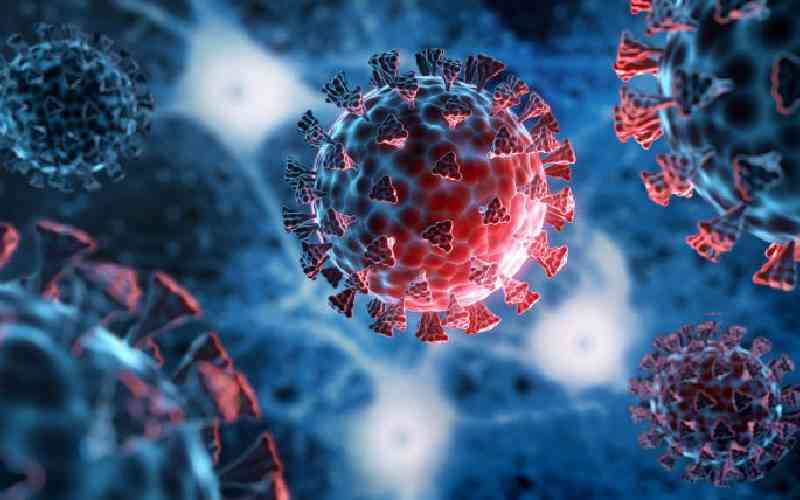“Only when the last tree has been cut down, the last fish been caught, and the last stream poisoned, will we realise we cannot eat money.”
This native American proverb captures the utter importance of the environment in our lives.
Undoubtedly, the environment plays a central role in the well being of humans.
This point is being driven home by the coronavirus sweeping across the world like an angry tornado and leaving the lethal Covid-19 disease in its trail. However, this virus didn’t just appear from nowhere.
It is said to have sprung from an unwelcome interaction between humans and wild animals. Coronavirus is said to have been born in Huanan Seafood Market in China’s Wuhan region. This seafood market wasn’t just selling fish and prawns. Also on offer were raccoon dogs, porcupines, snakes and deers, among other wild animals.
Scientists now believe any of these animals passed on coronavirus after receiving the virus from bats.
If these animals had been left in the wild where they belong, they would never have passed the coronavirus on to humans.
The sanctity of nature – trees, rivers, wild animals, oceans and more – must be respected. When we violate that sanctity, there is always a price to pay. Coronavirus is a direct result of this violation.
In 2003, the SARS virus was also linked to civet cats that were kept for food in a Guangzhou market. The Middle East respiratory syndrome-related (MERS) virus was also transmitted from wild animals, as was Ebola. Between 2014 and 2015, Ebola killed 11,000 people in West Africa. Almost a decade earlier from 2002 to 2004, SARS spread across 37 countries, infected 8,000 people and killed 774.
Covid-19 has now infected almost 100,000 people, killed at least 3,200 and seems to be still going strong. This is how lethal these diseases are. However, their pathogens would never have a chance of leaping into humans if forced proximity with these animals wasn’t there.
A few years ago in 2014 at Kruger National Park, an angry elephant rammed into a car when the driver drove too close to it. Last year in India, another angry elephant rammed into a tour van when the driver made the same mistake of driving too close to it.
Closer home at Serengeti, a rhino slammed into a car after its space was intruded into. Such cases of big mammals teaching machines a lesson abound.
The wild animals don’t mind sharing the earth with us, but when we intrude into their space, they have a way of delivering stinging warnings. Even when they don’t ram into cars, they can leave us with deadly viruses. Nature’s revenge isn’t limited to wild animals. Rivers too have a way of reminding us who is the boss. Most urban areas have encroached into riverine territory, which worsens the floods after heavy rains.
When the skies open, rivers usually reclaim their land, sweeping away not just belongings but tragically, also lives.
Illegal logging
Stay informed. Subscribe to our newsletter
If we care for our property and lives, we will leave rivers in peace and let them follow the pathways that nature carved out for them long before we were born.
Water towers too, do not take kindly to our illegal logging that is tantamount to robbery with violence.
All our water towers serve as catchment areas for the very rivers that flow into dams and subsequently into our taps. When we violate the sanctity of those water catchments, our taps will keep running dry for increasingly longer periods.
Nature doesn’t exist for our self-serving indulgence but for our faithful stewardship. Let us therefore allow wild animals to roam free in the wild where they belong.
When we do that, we will earn more from responsible tourism. Even more importantly, there will be no avenue for those animals to infect us with deadly diseases like Covid-19.
China should stop the wildlife trade rampant in hundreds of its markets. Those wild animals belong in the wild, not cages.
The trade in wildlife is now costing the world hundreds of lives and trillions of shillings. As such, wildlife trade is highly irresponsible even when it is supposedly legal.
If those animals roam freely, our health will soar like an eagle. In the same vein, if our forests and rivers flourish, our well being will also flourish. Can these happen if we do not think and act green? You have the answer.
- The writer is founder and chairperson, Green Africa Foundation. www.isaackalua.co.ke
 The Standard Group Plc is a
multi-media organization with investments in media platforms spanning newspaper
print operations, television, radio broadcasting, digital and online services. The
Standard Group is recognized as a leading multi-media house in Kenya with a key
influence in matters of national and international interest.
The Standard Group Plc is a
multi-media organization with investments in media platforms spanning newspaper
print operations, television, radio broadcasting, digital and online services. The
Standard Group is recognized as a leading multi-media house in Kenya with a key
influence in matters of national and international interest.
 The Standard Group Plc is a
multi-media organization with investments in media platforms spanning newspaper
print operations, television, radio broadcasting, digital and online services. The
Standard Group is recognized as a leading multi-media house in Kenya with a key
influence in matters of national and international interest.
The Standard Group Plc is a
multi-media organization with investments in media platforms spanning newspaper
print operations, television, radio broadcasting, digital and online services. The
Standard Group is recognized as a leading multi-media house in Kenya with a key
influence in matters of national and international interest.








